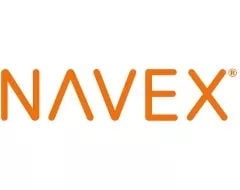How does whistleblowing help my organisation is a question we often have to answer, along with "how much?". We see real numbers from customers showing that whistleblowing is beneficial and receive feedback such as this:
"Through the investigation we improved the internal control and stopped further losses."
Whistleblowing helps organisations to limit financial losses, protect future profitability, build trust, prevent unacceptable misconduct and minimise risks. Of course, we cannot divulge specific customer cases, but in this short article we will look at three sources that do put a number on how much whistleblowing helps.
How does whistleblowing help society?
Recent news from the International Consortium of Investigative Journalists (ICIJ) that the Panama Papers have helped governments around the world to recover more than USD 1.2 billion in fines and taxes is a clear indication of the value of whistleblowing to society.
The whistleblower in this case was external – a law firm in Panama – and its chosen reporting route was via the media. The law firm leaked information related to offshore holdings of companies, private wealthy individuals, statesmen and others. The files implied financial crimes had been committed including large-scale tax evasion, money-laundering and wire fraud.
Since then, USD 1.2 billion has been publicly recuperated, a number that ICIJ assumes to be understated. Nonetheless, that's a lot of money going back to benefit societies around the world, thanks to a whistleblowing tip.
How does whistleblowing help companies?
If we move from a societal to a company level, whistleblowing is now increasingly seen as a very effective tool to combat fraud. Indeed, in its 2018 ACFE Report to the Nations on Occupational Fraud and Abuse, the Association of Certified Fraud Examiners reported that tips are by far the most common initial detection method with 46% of all cases being detected by a tip. The study examined 2,690 real cases of occupational fraud and found that fraud losses were 50% smaller at organisations with whistleblowing hotlines than those without.
How does whistleblowing help minimise losses to such an extent? Firstly a whistleblowing system is a preventive measure. The mere existence of a it makes a potential perpetrator think twice about committing misconduct – thus reducing damages. Secondly, it increases the chance of early detection if irregularities are suspected and reported – thus reducing damages. Thirdly, a whistleblowing system means that the potentially criminal activity can first be investigated internally, thus limiting the actual cost of investigation, and ultimately reducing financial and brand reputational risk for the organisation or company.
But whistleblowing relies on trust. Even if an internal whistleblowing system exists, no potential whistleblower will sound an alarm if they do not feel safe from retaliation, and if they do not feel that the system is secure. Which is why some people report externally, to relevant authorities or to the media, as was the case with the Panama Papers.
How does whistleblowing protect the financial interests of the EU?
The potential of whistleblowing to help in protecting the financial interests of the EU and safeguarding the public interest and the welfare of citizens and society is something that the EU has now recognised. Importantly though, the EU has also recognised the risk of people not reporting suspicions if they do not feel safe, which is why it is proposing new laws to protect the rights of those that are brave enough to blow the whistle.
Here are some of the numbers, taken from the impact assessment of the EU's proposed new laws. In the area of public procurement, the benefit of effective whistleblower protection in the EU is estimated to be between €5.8 and €9.6 bn each year. Whistleblower protection will also help the fight against tax avoidance. Profit-shifting accounts for a loss in tax revenues for Member States and the EU, estimated at about €50 – 70 bn. Also broad social impacts are expected to positively affect people and businesses. Introducing strong whistleblower protection will improve the working conditions of 40% of the EU workforce, which would otherwise be unprotected (around 60 million workers).
WhistleB is delighted that the EU has recognised how whistleblowing helps society, governments and business, and applauds its proposal for a three tier reporting:
- Internal reporting channels
- Reporting to competent authorities – if internal channels do not work or could not reasonably be expected to work
- Public/media reporting – if no appropriate action is taken after reporting through other channels, or in case of imminent or clear danger to the public interest or irreversible damage
In summary, how do we at WhistleB answer the question, "How does whistleblowing help"? Well, if the whistleblowing system is secure and user-friendly, if the whistleblower can be anonymous and their identity protected, if the case is managed appropriately and respectfully, if the organisation's leaders indicate their openness and commitment to ethical conduct, then we know that whistleblowing can and does help protect long-term success.
The content of this article is intended to provide a general guide to the subject matter. Specialist advice should be sought about your specific circumstances.

